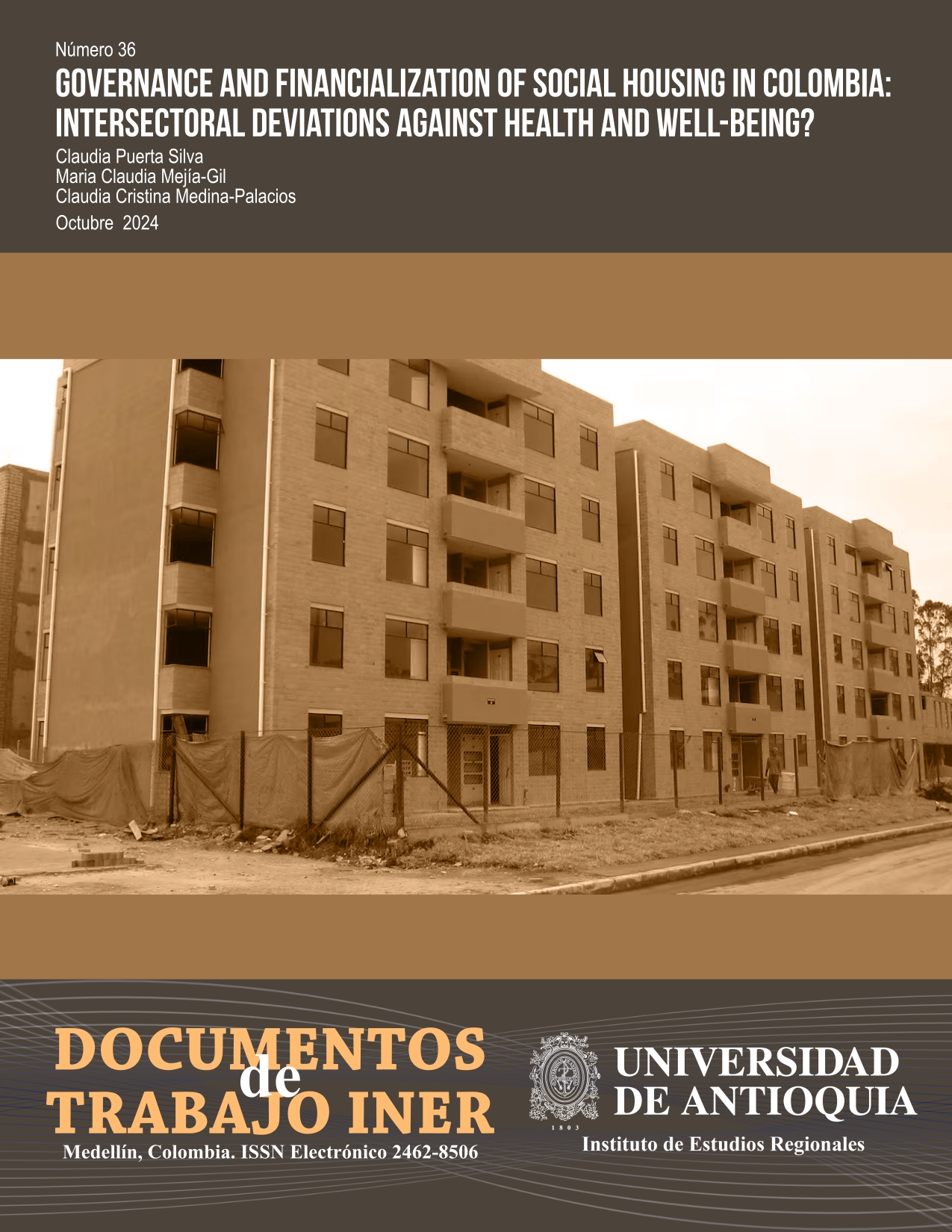Governance and financialization of social housing in Colombia: intersectoral deviations against health and well-being?
Palabras clave:
Intersectoral, Social housing, Governance, Colombia, Latin America, FinancializationResumen
According to international organizations, housing public policies are central to better living for the urban population. They should complement each other and respond to the population’s expectations regarding well-being. This article explores if social housing policies in Colombia and Latin America include intersectorality to contribute to health and well-being. Also, it exposes the impact of governance and governability approaches on public housing. After a literature review of academic studies, scientific articles, and institutional documents addressing global, Latin-American, and Colombian levels, and genealogical analysis using a categorical matrix, this text describes 1) the origin of the concept of intersectorality, the nature and scope of intersectorality in public housing, and its relationship to governance and governability, 2) the relationship between well-being and housing, and 3) the intersectoral efforts of public housing policy to contribute to well-being in Colombia. The results show that the intersectorality approach has its origins in the health sector, but in Colombia there is little reference to it by public housing policies. In this sector, there is more reference to the idea of governance, as understood in the Latin American context, which reveals the accelerated financialization of social housing as the effect of neoliberal policies all over the Global South.





